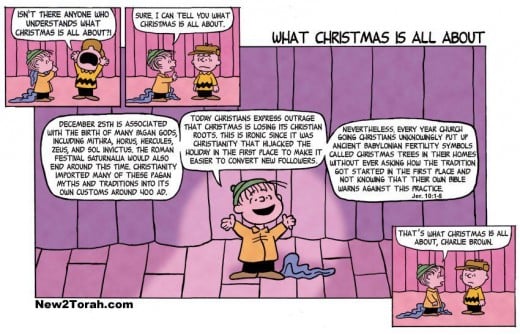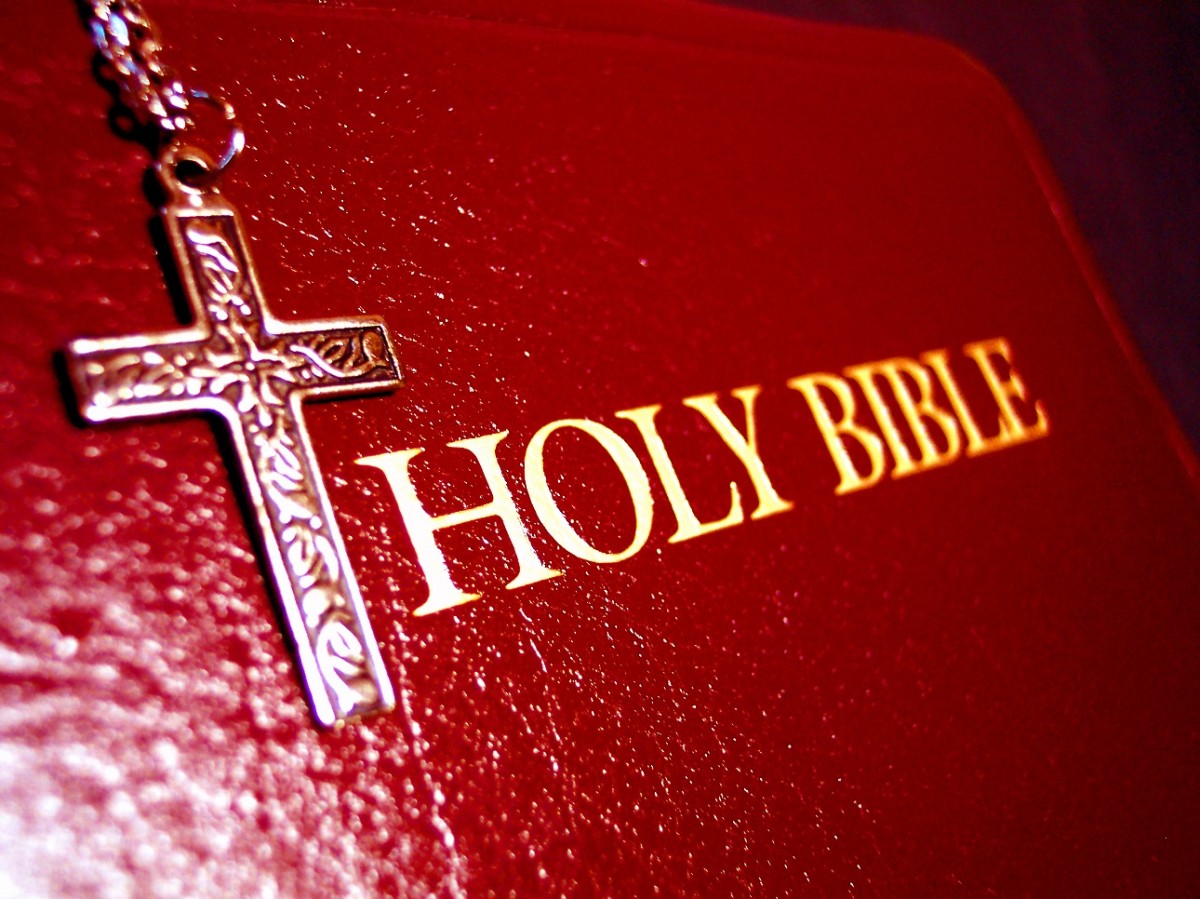No, there isn't a war on Christmas (and there never was).

Over the last dozen Christmas’ (and I’m sure the next dozen) there has been a frequent debate about whether or not there is a 'war' on Christmas. This war, popularized by 24 hour news networks, essentially revolves around businesses using the phrase ‘Happy Holidays’ instead of ‘Merry Christmas’ to greet their patrons. I can’t remember the exact year that this first started, but I’m fairly certain it was in the 2000s. So let me examine the reasons why it’s total crap.
Happy Holidays has been around a lot longer than the ‘war’ on Christmas.
When I was a kid (the 1990s), Happy Holidays was a common phrase. It was in stores, on television and written all over advertisements. At the time, I just assumed that the reason they said happy holidays was to cover all the end-year holidays at the same time. It’s easier to just say one thing rather than saying happy Thanksgiving, Christmas and New Years to everyone you see. As America became more aware and tolerant of other religions, it was just a lucky coincidence that happy holidays also covered other religious holidays at the end of the year. It was a win-win situation. That is, until someone turned it ugly.

It’s corporate, not personal.
There is also a misconception that the sides of this war are the Christians versus the non-Christians. So, in other words, the minority religions are saying to the Christians; you can’t say Merry Christmas because it offends us. In reality, no one ever said that and the non-Christians weren’t the ones calling for Happy Holidays to be in our stores. I myself am a non-Christian and I couldn't care less if you tell me Merry Christmas, Happy Hanukkah or Happy Festivus. Your greeting is the last thing that is going to offend me. The real war, if there is one, is between the Christians and the corporations. Corporations need to be politically correct because they don’t want to exclude potential buyers. If you ran a business, the worst thing you could do is discourage people from shopping in your store. That’s essentially how the companies saw it, so they shifted more towards Happy Holidays in the hopes that it would just cover everyone. Then, the war was created, and now Christians think they’re under attack.
Christianity is the MAJORITY!
So, while Christians and corporations fight a fictional war between each other, where does that leave the rest of us? In an attempt to be more accepting of all faiths, corporations kept Happy Holidays over Merry Christmas, and an overwhelming number Christians said; you can’t do that. So, some companies have given into the pressure and switched back. Just try to imagine how this looks to the rest of us who aren’t Christians. The biggest, most influential religion in the United States, is complaining because their religion isn’t up front and center at all their favorite stores. One of the things America prides itself on is religious freedom. If you come here, you can worship whoever you want. The message from powerful Christian groups, however, is that you can worship whoever you want, but don’t expect representation in our capitalistic society. We’re the biggest and therefore we deserve to have our names in giant glowing letters. Which doesn't seem to gel very well with the USA's melting-pot status or Christian values.

Christmas isn’t Christian.
I think part of the problem is the disconnect between the Christmas we know today versus the Christianity we know today. For example, one could grow up celebrating Christmas and having little to no associations between it and religion. I know this because that’s exactly what happened to me. My parents were not Christian and yet we celebrated Christmas every year. How did we do this? Because very little of Christmas is associated with Jesus anymore. Santa clause, pine trees, frosty the snow man and Rudolf are all staples of Christmas and yet they have almost nothing to do with Christianity. And, even if there was some nugget of similarity in the past (Saint Nicholas) the old ways are so commercialized that those associations are indistinguishable now. This comes on top of the fact that December 25th is not actually Jesus’s birthday. The church made it his birthday in order to assimilate pagan religions, so that little speech on a Charlie Brown Christmas is wildly inaccurate. If Christians should be mad at anyone, they should be mad at the corporations that turned the holiday into something that the non-religious could also celebrate.
But I bring up the subject of Christmas not being Christian because I think that might be why a lot of people are upset when they don’t hear it walking into a store. Because the religious associations have been downplayed and the patriotic associations enhanced. Christian Christmas is a religious holiday that is grouped under Happy Holidays with every other religion. Corporate Christmas, however, is an American holiday that should be left alone. That, I believe, is one of the reasons why this 'war' ever gained ground.
In the future.
My biggest concern here is that, because of the Christian backlash to this phony war, it is now considered a bad thing to say ‘happy holidays’. It’s almost like they’re interpreting the greeting as a direct insult to their religious beliefs. So, despite what word of mouth, and the 24 hour news networks are telling me, all I see are religious people attacking Happy Holidays. If this is a war, it’s incredibly one sided. The juggernaut religion was tricked into thinking it was at war, so it systematically took out the peaceful village at the edge of town. It would be like the United States going to war with New Zealand because we THOUGHT they had insulted us. Meanwhile New Zealand is just trying to figure out what happened while it’s bombarded from all sides. As a side note, I think New Zealand is great and would love to vacation there some day.
So, what have we learned from all of this? First, the use of Happy Holidays isn’t an attack on Christmas. It’s been around long enough to make that claim. Second, if there is any perceived shift in the use of holiday greetings, blame the corporations, not the minority religions who still aren’t getting recognition. Or, blame the 24 hour news media that manufactured this war in the first place. Third; Christians, chill out. You’re still the big man on campus. The worst thing you can try to do is play the victim card to a bunch of minorities. I doubt Jesus would throw a hissy fit because he didn’t see his name on the front door of a JCPenny. What corporations do or don’t do around the holidays should have no bearing whatsoever on your personal religious beliefs, so get over it.








